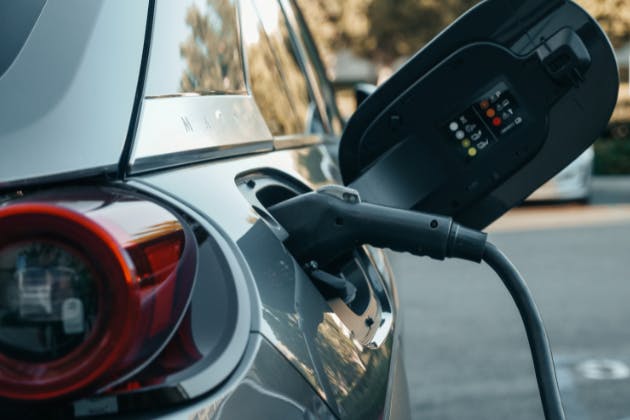Choosing the right EV charger for your home is an important step in your switch to electric driving. It affects how quickly your car charges, how much control you have over your energy usage, and how future-ready your setup is. With a growing range of options on the market, this guide will help you make an informed decision tailored to your home and lifestyle.
Choosing the right EV Charger
Tethered vs Untethered Chargers
Tethered chargers come with a fixed cable attached, making them convenient for everyday use. Simply park up and plug in. They’re ideal if you have one car with a consistent connector type. However, the cable is always visible, and if you get a car with a different plug type in the future, you might need to upgrade or use an adaptor.
Untethered chargers, on the other hand, require you to use your cable. This offers more flexibility, especially if you have multiple EVs or plan to change cars. It also gives a cleaner look when the charger is not in use, as the cable can be stored separately.
Charging Speed and Power Rating
Most home EV chargers in the UK are rated at 3.6kW or 7kW. The 7kW option is the most popular as it strikes a good balance between cost, charging speed, and compatibility with typical domestic power supplies. A 7kW charger can provide around 25 to 30 miles of range per hour, which suits most daily driving needs.
If you require faster charging, 11kW or 22kW options are available but only work with a three-phase electricity supply, which is uncommon in standard UK homes. Upgrading to three-phase can be expensive and may not be necessary unless you have a high-mileage lifestyle or multiple electric vehicles.
Smart Features
Modern chargers come with smart functionality that can help you save money and reduce your carbon footprint. These features often include:
- Scheduled charging during off-peak tariff times
- Integration with solar panels or home energy systems
- Remote monitoring and control via a smartphone app
- Load balancing to protect your home’s electrical supply
- Usage data and reports to track energy consumption
Smart chargers are especially useful if you’re on a variable energy tariff or want to optimise charging when electricity is cheapest or greenest.
Compatibility and Futureproofing
It’s essential to check whether the charger you’re considering is compatible with your vehicle. Most new EVs use a Type 2 connector, which is standard across the UK and Europe. Still, it’s worth confirming this to avoid surprises.
Also, think long-term, especially if you plan to switch to a different make or model in the future, or if other members of your household will also use an EV, a versatile untethered charger or one with interchangeable leads may be the better choice.
Location and Cabling
The physical location of your charger can have a significant impact on both practicality and cost. Ideally, the unit should be installed on an external wall near where you park, with a clear route for cabling from your consumer unit (fuse box).
Longer cable runs or the need to trench through driveways can add to installation costs. A qualified electrician will survey your home and advise on the safest and most efficient setup, including any additional electrical upgrades your property might need.
Looking for tailored EV charger installation in Chingford, Epping, Loughton, Woodford, Walthamstow or Wanstead?
Beales Electrical offers expert guidance, full installation, and aftercare to keep your EV charging safely at home. Call us on 0333 335 6281 or fill out our contact form to book a consultation.



